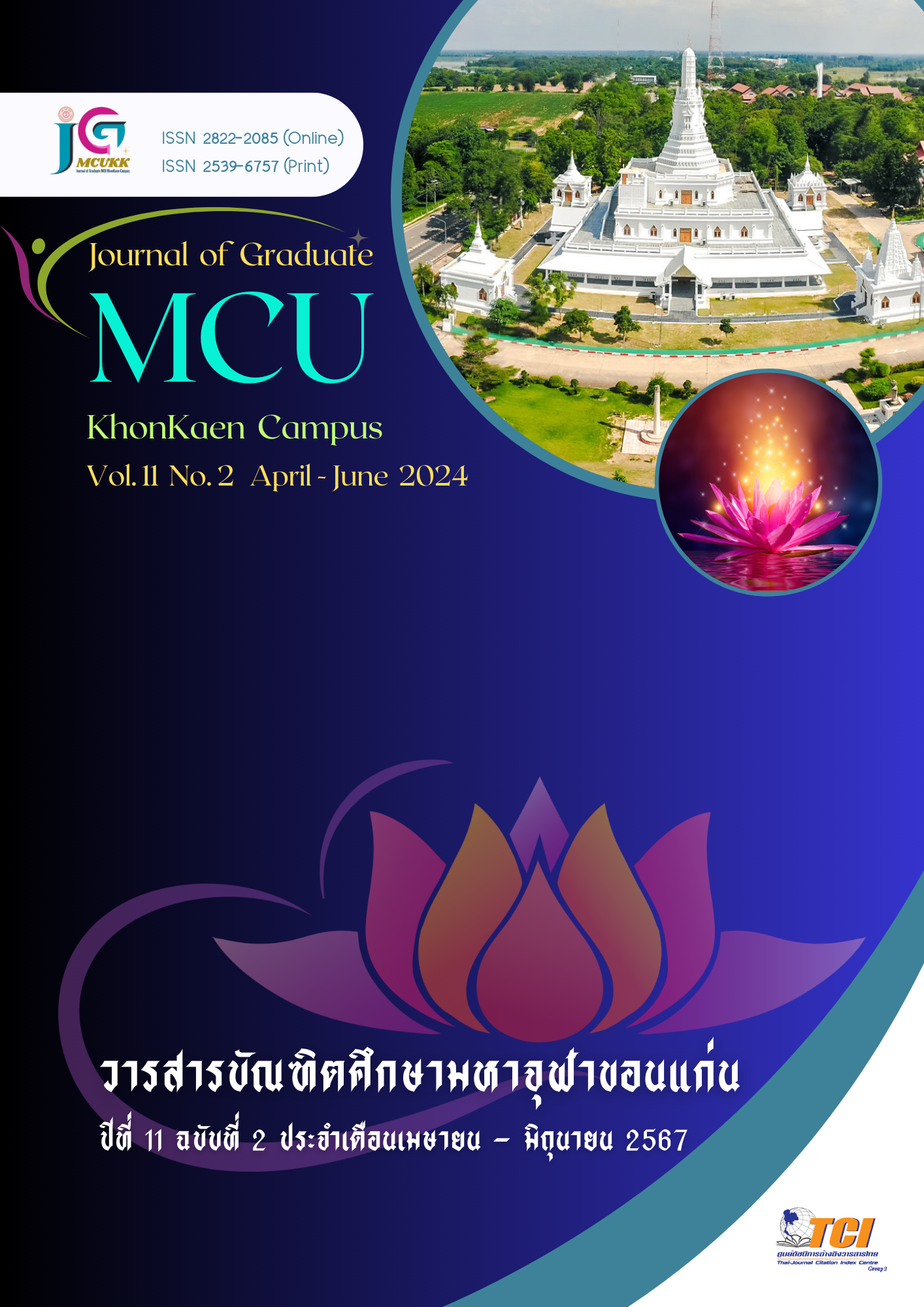Academic Administration According to the Four Sangahawatthu Principles in the 21st Century of Phra Pariyattidhamma School Under the Study Area of Phra Pariyattidhamma General Department Region 8
Main Article Content
Abstract
This research aimed to (1) study the state of academic administration based on the Four Saṅgahavatthu Principles in the 21st century of educational institutions under the Office of Phrapariyattidhamma Educational Service Area 8, and (2) propose a guideline for academic administration based on the Four Saṅgahavatthu Principles in the 21st century of educational institutions under the Office of Phrapariyattidhamma Educational Service Area 8. This mixed-methods research included both quantitative and qualitative approaches. The quantitative component involved a questionnaire with a sample of 205 participants, analyzed with percentages, means, and standard deviations. The qualitative component involved interviews with 12 key informants.
The research results were as follows:
- The state of academic administration based on the Four Saṅgahavatthu Principles in the 21st century of educational institutions under the Office of Phrapariyattidhamma Educational Service Area 8 was found to be at the highest level overall.
- The guidelines for academic administration should include the following principles: Generosity (Dāna): including material giving, giving of teachings, and forgiveness; adhering to the principle of generosity in practice benefits practitioners and serves as a moral anchor; Kind Speech (Piyavācā): administrators and academic personnel should communicate with compassion, using polite language, sincerity, and appropriateness; Beneficial Actions (Atthacariyā): this involves dedicating oneself to improving and developing work through beneficial behavior; Equal Treatment (Samānattatā): maintaining consistency in work and behavior, focusing on continuous improvement, and establishing a respectful and credible stance among peers.
Article Details

This work is licensed under a Creative Commons Attribution-NonCommercial-NoDerivatives 4.0 International License.
References
กองพุทธศาสนศึกษา สำนักงานพระพุทธศาสนาแห่งชาติ. (2557). คู่มือปฏิบัติงานโรงเรียนพระปริยัติธรรมแผนกสามัญศึกษาศึกษา. กรุงเทพฯ: สำนักงานพระพุทธศาสนาแห่งชาติ.
ชลณา ม่วงหวาน. (2563). รายงานผลการดำเนินงาน ส่งเสริมผู้เรียนให้มีคุณลักษณะและทักษะการเรียนรู้ในศตวรรษที่ 21. กาญจนบุรี: กลุ่มนิเทศ ติดตาม และประเมินผลการจัดการศึกษา.
ปรีชา นาราศี. (2564). แนวทางการพัฒนาทักษะในศตวรรษที่ 21 สำหรับครูประถมศึกษา จังหวัดสระบุรี. (วิทยานิพนธ์ศึกษาศาสตรมหาบัณฑิต). ปทุมธานี: มหาวิทยาลัยเทคโนโลยีราชมงคลธัญบุรี.
สำนักงานคณะกรรมการวิจัยแห่งชาติ. (2561). คู่มือการตรวจสอบและประเมินผลข้อเสนอการวิจัยของหน่วยงานภาครัฐที่เสนอของบประมาณประจำปีงบประมาณ พ.ศ. 2561 ตามมติคณะรัฐมนตรี. กรุงเทพฯ: สำนักงานคณะกรรมการวิจัยแห่งชาติ.
สำนักงานคณะกรรมการการศึกษาขั้นพื้นฐาน. (2563). นโยบายของสำนักงานคณะกรรมการการศึกษาขั้นพื้นฐาน ปีงบประมาณ พ.ศ.2563. กรุงเทพฯ: สำนักวิชาการและมาตรฐานการศึกษา.
สำนักเขตการศึกษาพระปริยัติธรรม แผนกสามัญศึกษาศึกษา เขต 8. สถิติข้อมูลโรงเรียนพระปริยัติธรรม แผนกสามัญศึกษาศึกษา. สืบค้นเมื่อ 10 กรกฎาคม 2566, จาก http://www.debeight.org/data_15234_1

